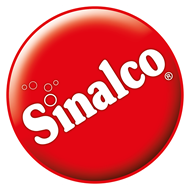Organic Rice in the Philippines For Healthy Living
Do you prefer healthy living? Go organic rice! Health buffs would like to get their hands on real organic rice. If you're one of them, do you know which ones are authentic organic rice? This blog will tell you all you need to know about organic rice.
Some people think that organic rice is red and brown rice variety only. Not really. It comes in other varieties and colors such as white, black, etc. The idea that red and brown alone are organic rice is wrong. These rice varieties are now sold under specific brands in leading supermarkets in the Philippines, however, not all of them are organic rice. But how will you know if you're buying organic rice or not?
Organic rice is farmed without using synthetic fertilizer and chemical pesticide inputs. Besides the inputs, there are other things to consider such as - How was it planted? What were the farming methods used? Was there contamination along the supply chain until it has reached the end consumer?
There are varieties of farming methods for organic rice. One such method is rice duck farming, which is popular in Asian countries such as Japan, Korea, Indonesia, Vietnam, and China. This method uses ducks as substitutes for pesticides and herbicide inputs. In a rice farm, the ducks eat all of the pest and non-beneficial weeds but they don't eat the rice grains.
Another farming method for organic rice is bio-dynamic farming. In this method, rice farming considers the relationship between soil, plants, and animals. Rice is grown during ideal seasonal cycles, such as the position of the sun, moon, stars, and planets. This method uses an astronomical calendar for sowing and planting.
The other method is simply using organic fertilizer inputs during rice cultivation and growing.
If you're looking to buy organic rice, look for the seal on the label. It should state that what's inside the packaging is organic rice. The seal should belong to an accredited third-party certifying body. A seal guarantees the rice product is organic. To know if it is authentic, you can check the seal of guaranty online. Here is an example of a certified organic seal.
Before placing a seal of guarantee on the product label, the organic rice planted and harvested goes thru a tedious process where the producers should always stick to an internal control system for organic rice farming. At the farm level, that system is used and the certifying body periodically checks if the farmers follow the established internal control system. Farmers maintain records to ensure the system is being followed. The estimated harvest volumes of organic rice are pre-recorded as part of the guarantee system. Any excess in the volume is considered a deviation from the system.
It is not easy to implement organic rice farming. In fact, it is a slow, tedious, and expensive process. That is why it is not easy to convince farmers to convert to organic rice farming. In the certification process, there is a so-called conversion period where the farmland has to go undergo a transition period. Chemical and synthetic inputs should not be used for a time to eliminate any residue before organic rice seeds are planted. This is to ensure that the soil becomes free from insecticide and synthetic fertilizer residue.
The certification of organic rice does not stop at the farmers' level The distribution network should also be chemical-free. On the network, the organic rice passes through the consolidators. During storage, consolidators should not mix organic rice with non-organic rice, and should not be mixed with non-organic products that have pesticides and chemical residues. The re-sellers who buy from consolidators should do the same.
As a health buff consumer,, you should always look for the seal to be sure you are buying organic rice.
You may want to visit this site: http://www.occpphils.org/.




very informative...please write about different varieties of organic rice and what are their taste, nutritional values and etc.
ReplyDelete